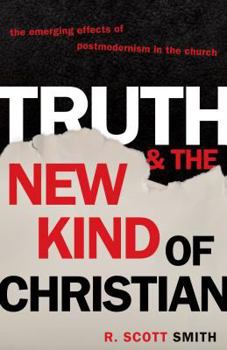Truth and the New Kind of Christian: The Emerging Effects of Postmodernism in the Church
R. Scott Smith surveys the influence of postmodernism and presentsthe claims of several Christian postmodern authors, including twokey leaders in the Emerging Church. He uses their ideas as astarting point for a thorough critique of postmodernism, testing itagainst Scripture, reason, and logic, and evaluating its strengthsand weaknesses. He assesses to what extent, if any, Christiansshould embrace "Christian" postmodernism.
Format:Paperback
Language:English
ISBN:1581347405
ISBN13:9781581347401
Release Date:November 2005
Publisher:Crossway
Length:208 Pages
Weight:0.58 lbs.
Dimensions:8.5" x 0.5" x 5.8"












